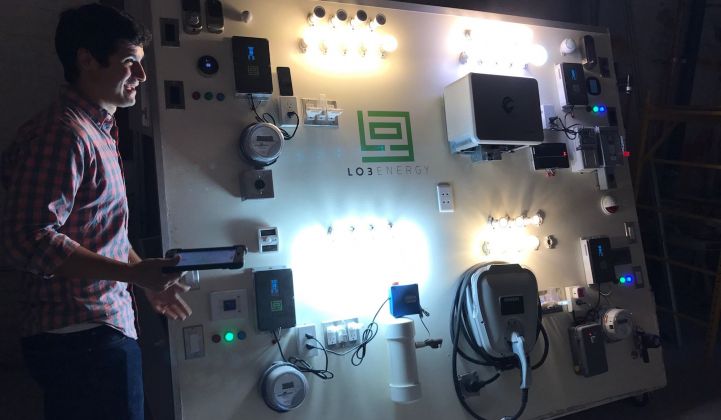Two major blockchain players announced a joint project Tuesday to standardize data in the industry, signaling startups are looking at ways to support sustainable growth.
LO3 Energy announced its energy data platform, Exergy, will now be an affiliate of the nonprofit Energy Web Foundation, which advocates for blockchain technology in energy applications. Together they’ll work on standardizing data for use in EWF’s blockchain, which is designed specifically for the energy industry.
Lawrence Orsini, LO3's CEO, said creating a data standard for transacting energy across projects and users is key to meeting blockchain's potential.
“Not having the data at the scale we’re talking about, from the grid edge, is like trying to run the internet in the early days with smoke signals,” Orsini said. “The data you have is not [at] the right intervals, it’s not the right type of data, it’s not standardized — every project you do you have to reinterpret the data.”
The goal is to make sure that projects and resources on the grid edge can use the same language to talk with each other. Those standards do not exist as of yet. Orsini specifically cited one program meant to give consumers more agency over their energy-use data, Green Button, as a “broken business model” that hasn’t delivered the relevant data at the scale he hoped.
LO3 aims to pull more data into the marketplace through smart meters and other distributed energy resources and use that data to scale energy transactions, all underpinned by blockchain. Other EWF affiliates can contribute to use the data for product creation, grid management, and other grid applications. Over 30 companies are currently using EWF's test network.
“It’s really an effort to accelerate the business models that need to spring up for us to get to transactive energy markets and adopt DERs at scale at the grid edge,” Orsini said.
The company will begin with a demonstration project that includes its Exergy platform and an EWF member. LO3 declined to offer a timeline for the project. It will continue with other projects, such as its local energy market in Cornwall, micro-energy hedging in Texas, and microgrids in Brooklyn and Allgau, Germany.
GTM Research grid edge analyst Colleen Metelitsa said the significance of the LO3-EWF partnership may lie in the business relationship more than the project. Both companies are big names in blockchain.
In the past, similarities between LO3's and EWF’s goals indicated the two were in competition. But Orsini argues there’s “pretty strong alignment for the market” on both sides of the agreement.
“We’re starting to see companies really recognize that it’s in their best interest to work together to scale the industry as quickly as possible, and to standardize it as quickly as possible, so you can get beyond pilots and use cases,” said Metelitsa.
While diverse companies in the blockchain space may currently be willing to play together for a common goal, that may not be the case as they add different applications, said Metelitsa.
“Down the line, I have a hard time believing they won’t be in some type of competition with each other,” she said.
The “affiliate” relationship is similar to those EWF has already initiated with utilities such as Duke Energy, oil and gas majors like Shell, and startups like Verv. EWF has raised $17 million from its affiliates.
“A lot of these companies that are joining them, they aren’t just small startups that don’t also have their own connections. These are people that have their own consortia, have their own platforms, have their own goals,” said Metelisa. “EWF is gaining some traction.”
Orsini, who in the past has characterized the blockchain industry as mostly hype, said relationships like the one between LO3 and EWF will propel the market forward.
“To get through this energy transition, it is going to take a method to pull information from distributed resources,” said Orsini. This type of data standardization, he added, “feels necessary and it feels a bit overdue.”




